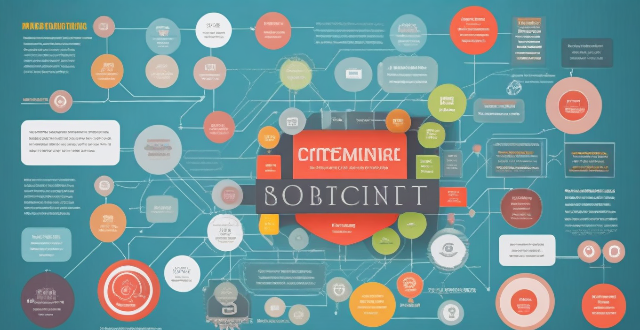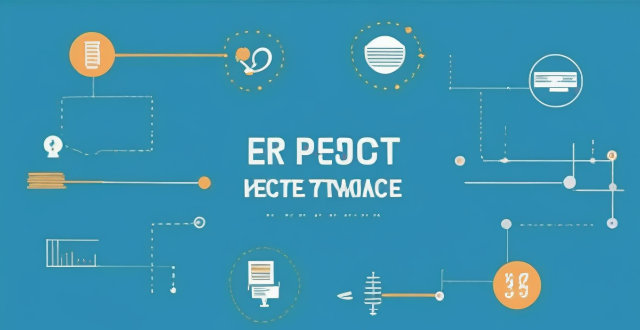Financial Contract

How can smart contracts be used to streamline financial transactions ?
Smart contracts can streamline financial transactions by automating processes, reducing costs, and increasing efficiency. They can automate payments and transfers, act as escrow services, create loan agreements, streamline insurance claims, and facilitate trading and exchanges of financial assets. As blockchain technology evolves, we can expect more innovative uses for smart contracts in the financial industry.

What is a smart contract ?
Smart contracts are self-executing contracts with the terms of the agreement between buyer and seller being directly written into lines of code, which exist across a distributed, decentralized blockchain network. They allow for transactions and the transfer or distribution of cryptocurrencies to be executed automatically without the need for a central authority, legal system, or external enforcement mechanism. Smart contracts are autonomous, immutable, traceable, and decentralized. They have various use cases such as cryptocurrency transactions, insurance claims, supply chain management, real estate transactions, gambling and betting, and legal documents. The benefits of smart contracts include efficiency, transparency, security, speed, and accuracy. However, there are challenges and considerations such as code quality, lack of legal recognition, interoperability issues, and privacy concerns.

What is the difference between a regular contract and a smart contract ?
A regular contract and a smart contract differ in terms of their **nature**, **enforceability**, **cost**, **speed**, and **transparency**. Below are the key differences between these two types of contracts: ## Nature ### Regular Contract - Legal agreement between two or more parties. - Typically written in natural language (e.g., English). - Governed by local laws and regulations. ### Smart Contract - Self-executing contract with the terms directly written into code. - Deployed on a blockchain network. - Enforced by the underlying code and cryptographic protocols. ## Enforceability ### Regular Contract - Relies on legal institutions for enforcement (e.g., courts). - May involve mediation or arbitration processes. - Penalties for breach can be monetary or involve other forms of relief. ### Smart Contract - Autonomously executes when predetermined conditions are met. - Enforcement is decentralized and automated. - Penalties for breach are typically programmed into the contract logic. ## Cost ### Regular Contract - Can be costly due to legal fees, notary services, and potential litigation expenses. - Involves overhead of paper-based record keeping and manual processing. ### Smart Contract - Generally less expensive because it eliminates intermediaries. - Costs associated with blockchain transaction fees and contract deployment. ## Speed ### Regular Contract - Time-consuming process from negotiation to signing and execution. - Settlement times can vary widely depending on the complexity of the agreement. ### Smart Contract - Faster execution once the conditions are met. - Real-time settlements possible due to automation. ## Transparency ### Regular Contract - Limited transparency; only involved parties have access to the contract details. - Requires trust in the counterparty to disclose all relevant information. ### Smart Contract - High transparency; contract code and transactions are visible on the blockchain. - Trust is placed in the immutable and verifiable nature of the blockchain.

How can schools address the issue of contract cheating, where students pay others to complete their assignments or exams ?
Addressing contract cheating in schools is crucial for maintaining academic integrity. Effective measures include using advanced plagiarism detection tools, educating students on academic integrity, encouraging open discussions, providing support services, and collaborating with parents and guardians. These strategies can deter students from engaging in contract cheating and promote a culture of original work.

What are the potential risks associated with smart contracts ?
Smart contracts revolutionize digital transactions but pose risks like code vulnerabilities, legal uncertainties, lack of human oversight, interoperability issues, and privacy concerns. Users must understand these potential pitfalls before engaging in smart contract agreements to mitigate adverse outcomes.

What is the role of blockchain in the financial industry ?
Blockchain technology has emerged as a game-changer in the financial industry, offering unprecedented levels of security, transparency, and efficiency. Its decentralized nature and immutable ledger system have paved the way for innovative applications that are reshaping the financial landscape. In this article, we will explore the various roles of blockchain in the financial industry. One of the key advantages of blockchain is its ability to create trust without the need for intermediaries. Traditional financial systems rely on central authorities, such as banks or clearinghouses, to verify and record transactions. With blockchain, transactions are verified by a network of nodes, each of which maintains a copy of the ledger. This decentralized approach eliminates the need for intermediaries, reducing costs and increasing efficiency. Blockchain provides a transparent and auditable ledger of all transactions. Each transaction is recorded on the blockchain in a tamper-resistant manner, ensuring that any attempt to alter the ledger will be immediately apparent. This level of transparency enhances accountability and reduces the risk of fraud or errors. Smart contracts are self-executing contracts with the terms of the agreement between buyer and seller being directly written into lines of code. These contracts can automatically execute transactions when certain conditions are met, eliminating the need for intermediaries and reducing the risk of non-performance or disputes. Smart contracts have the potential to revolutionize many areas of finance, including insurance, real estate, and supply chain management. Distributed ledger technology (DLT) is at the heart of blockchain's capabilities. It allows multiple parties to have access to a shared database that is secure, transparent, and tamper-proof. DLT enables faster settlement times, improved cash management, and reduced operational risks. It also facilitates cross-border payments and remittances, making them more efficient and cost-effective. Tokenization involves representing physical assets, such as stocks, bonds, or real estate, as digital tokens on a blockchain. This process enables fractional ownership, easier transferability, and increased liquidity. Tokenization also allows for programmable assets, where rules can be embedded into the tokens themselves, enabling automated compliance with regulations and contractual obligations. Blockchain can be used to create a secure and decentralized identity verification system. This system would allow individuals to control their own identity information and share it selectively with third parties while maintaining privacy. Such a system could significantly reduce identity fraud and streamline processes that require identity verification, such as opening bank accounts or applying for loans. Blockchain's transparency and immutability make it an ideal tool for regulatory compliance. By using blockchain to record all financial activities, regulators can easily monitor and analyze transactions in real-time, identifying potential violations and enforcing compliance more effectively. This could lead to more efficient regulation and better protection for consumers and investors. In conclusion, blockchain technology has the potential to transform the financial industry by improving efficiency, reducing costs, enhancing security, and promoting transparency. From decentralization and trust to smart contracts and tokenization, blockchain is poised to disrupt traditional financial models and create new opportunities for innovation and growth. As adoption continues to accelerate, we can expect to see even more exciting developments in the years ahead.

What are the risks associated with investing in financial products ?
Investing in financial products can be a great way to grow your wealth, but it's important to understand the risks involved. Here are some of the key risks associated with investing in financial products: 1. Market risk refers to the possibility that an investment may lose value due to changes in market conditions. 2. Credit risk is the risk that a borrower or counterparty will fail to meet its obligations under a financial contract. 3. Interest rate risk is the risk that changes in interest rates will negatively impact the value of an investment. 4. Inflation risk is the risk that inflation will erode the purchasing power of your investments over time. 5. Liquidity risk is the risk that you may not be able to sell your investment quickly without affecting its price. 6. Currency risk is the risk that fluctuations in exchange rates will negatively impact the value of your investments. 7. Concentration risk is the risk that your portfolio is too heavily invested in a single asset class, sector, or geographic region. 8. Tax risk is the risk that changes in tax laws or regulations will negatively impact the after-tax returns of your investments. 9. Fraud risk is the risk that you may be victimized by fraudulent activities related to your investments.

What are the legal implications of using smart contracts ?
Smart contracts, self-executing contracts with terms written in code on a blockchain, raise legal questions about enforceability, jurisdiction, privacy, security, and regulatory compliance. Best practices include consulting a legal expert, clearly defining terms, considering jurisdiction, and prioritizing privacy and security.

Are there any hidden fees or contracts associated with upgrading my broadband ?
When upgrading broadband, beware of early termination fees, equipment rental costs, and installation charges. Also, understand contract minimums and auto-renewal clauses before committing.

How do smart contracts work ?
Smart contracts are self-executing contracts with the terms directly written into code, operating on a decentralized blockchain network. Key features include autonomy, trustless transactions, immutability, and traceability. The working mechanism involves deployment, execution based on predefined conditions, verification through consensus algorithms, and settlement updating contract states. Benefits encompass efficiency, transparency, security, and the removal of intermediaries. Challenges include legal recognition, coding errors, and handling complex logic. Smart contracts revolutionize traditional contract law by enabling secure, automated, and transparent transactions on blockchain networks.

What are smart contracts in the context of blockchain ?
Smart contracts are self-executing digital agreements that operate within the blockchain, providing a decentralized and trustless system for transactions. They are created using specific programming languages and deployed onto a blockchain platform. Once conditions are met, smart contracts execute automatically, with each node verifying the process to ensure accuracy. Applications include cryptocurrencies, supply chain management, real estate, insurance, and legal agreements. However, challenges like immutability, complexity, legal standing, and privacy concerns must be addressed.

How does Fintech impact financial inclusion ?
Fintech has revolutionized financial services, making them more accessible and affordable. It has increased accessibility for unbanked populations, lowered costs, improved efficiency, driven innovation, enhanced security, promoted financial literacy, facilitated inclusion initiatives, enabled digital identity verification, supported microfinance and crowdfunding, and promoted mobile money and payment systems. These advancements have significantly impacted financial inclusion worldwide.

How do celebrities choose the products they endorse ?
Celebrities choose the products they endorse based on personal preferences, financial considerations, market trends, ethical standards, and legal obligations. They prefer endorsing products that align with their personal brand image and have a good reputation. Financial aspects such as compensation and potential profit-sharing agreements also play a crucial role in endorsement deals. Celebrities consider whether the product is popular among their target audience and keep an eye on market trends to stay relevant. They are cautious about endorsing products with questionable practices and prefer supporting brands that uphold ethical standards or have a positive social impact. Before agreeing to endorse a product, celebrities carefully review contract terms and consider potential liability concerns.

How can I maintain my financial freedom once I achieve it ?
The text discusses strategies for maintaining financial freedom, including creating a budget and sticking to it, building an emergency fund, investing wisely, living below one's means, and continuously learning and growing. It emphasizes the importance of discipline, planning, and effort in sustaining financial independence.

What is the impact of financial regulation on innovation in the financial sector ?
Financial regulation plays a critical role in the innovation landscape of the financial sector, with both positive and negative impacts. Positively, it promotes transparency and trust, encourages responsible innovation, and facilitates access to capital. However, it can also slow down the pace of innovation, restrict experimentation, and stifle international competitiveness. To mitigate these negative effects, adaptive regulation, collaborative approaches, and education and training are recommended. Striking a balance between fostering innovation and ensuring safety is crucial.

What is the relationship between financial regulation and financial stability ?
The relationship between financial regulation and financial stability is crucial for the proper functioning of the economy. Financial regulation, consisting of laws and guidelines, aims to ensure the safety and soundness of the financial system and protect consumers. Financial stability, on the other hand, refers to a condition where the financial system can withstand shocks without significant disruptions. Financial regulation affects financial stability in several ways: 1. It prevents financial fraud and misconduct by enforcing strict rules and penalties, maintaining public trust in the financial sector. 2. It promotes transparency and disclosure, allowing stakeholders to make informed decisions and enabling regulators to monitor the financial system effectively. 3. Regulators encourage sound risk management practices, such as capital requirements and stress testing, contributing to overall financial stability. 4. They maintain market integrity by promoting fair competition and preventing monopolistic behavior, ensuring confidence in the financial system. 5. Regulators address systemic risks through macroprudential policies, safeguarding against widespread financial instability. In conclusion, financial regulation plays a vital role in maintaining financial stability by preventing fraud, promoting transparency, encouraging sound risk management, maintaining market integrity, and addressing systemic risks. However, finding the right balance between regulation and innovation is crucial for achieving both regulatory effectiveness and financial stability.

What is the impact of financial regulation on global financial markets ?
Financial regulation is vital for maintaining stability and efficiency in global financial markets. It influences market stability by reducing volatility and preventing crises, improves risk management through enhanced transparency and control over high-risk practices, protects investors from fraud and unfair trading practices, and fosters innovation while ensuring safety and compliance. This balance is crucial for the health and growth of the global economy.

How do financial regulations impact banks and other financial institutions ?
Financial regulations are crucial for maintaining stability in the banking and financial sector. They protect depositors' interests, promote fair competition, prevent financial crises, and impact innovation and efficiency. Regulations like capital adequacy ratios, liquidity coverage ratios, and stress testing ensure depositors' safety. Antitrust laws and consumer protection laws encourage fair competition among banks. Prudential supervision and Basel III help prevent financial crises. However, excessive regulation may negatively affect innovation and profitability. Striking a balance between safety and promoting innovation is key.

How can governments encourage and improve financial literacy among citizens ?
Governments can encourage financial literacy by implementing education programs, offering accessible financial services, and enforcing consumer protection regulations. This will help citizens make informed decisions about their money, investments, and debts.

What role does financial literacy play in achieving wealth growth ?
Financial literacy is essential for wealth growth, encompassing budgeting, saving, investing, retirement planning, and credit management. By understanding these aspects, individuals can make informed financial decisions, reduce debt, build wealth, and achieve long-term financial stability.

In what ways does financial literacy affect personal finance management ?
Financial literacy is crucial for managing personal finances effectively, as it helps individuals understand basic financial concepts, promotes prudent budgeting and spending habits, shapes savvy saving and investing strategies, and facilitates efficient debt management.

What is financial regulation ?
The text discusses the concept of financial regulation, which is a set of rules and guidelines that govern the operations of financial institutions. The primary objectives are to ensure stability and integrity of the financial system, promote fair dealing, protect consumers, and prevent financial crises. Key components include prudential regulation, market conduct regulation, consumer protection, systemic risk oversight, structural regulation, regulation of market infrastructure, and international coordination. Purposes of financial regulation are to ensure stability, promote transparency, protect consumers, facilitate efficiency, and prevent criminal activity. Methods of financial regulation include rulemaking, supervision, inspection, capital requirements, and liquidity requirements. Challenges in financial regulation include balancing oversight with innovation, keeping pace with technology, and international coordination.

Can anyone achieve financial freedom ?
Financial freedom, a state where one's passive and active income covers living expenses without regular time-for-money exchanges, is a goal many strive for. Key factors for achieving it include education, saving habits, smart investing, debt management, multiple income streams, avoiding lifestyle inflation, long-term planning, and the right mindset. Actionable steps include budgeting, automated savings, early investing, continuous learning, and networking with like-minded individuals. While not everyone may achieve financial freedom due to varying circumstances, it is attainable for those who are committed and strategic in their approach.

Is there a financial case for divesting from high-carbon industries ?
The debate over whether there is a financial case for divesting from high-carbon industries is ongoing, with proponents arguing that it can improve risk management, long-term returns, and alignment with sustainability goals, while opponents contend that it can lead to lost opportunities, lack of evidence for financial benefits, and short-term costs. The decision to divest ultimately depends on individual investor preferences and goals.

How has financial regulation evolved over time ?
The evolution of financial regulation has been marked by significant changes in response to economic crises, technological advancements, and shifts in political ideologies. From the laissez-faire approach of early days to the rise of regulatory frameworks during the Great Depression, through the deregulation era of the late 20th century, and the renewed emphasis on regulation following the Global Financial Crisis, financial regulation has adapted to maintain stability and promote growth within the financial sector. The digital age presents new challenges, requiring regulators to adapt existing frameworks to accommodate technological innovations while ensuring consumer protection and systemic stability.

Why is financial regulation important ?
Financial regulation plays a crucial role in maintaining the stability and integrity of the financial system. It protects investors by ensuring transparency and preventing fraudulent activities, maintains stability by preventing excessive risk-taking, encourages economic growth through competition and innovation, and prevents financial crime such as money laundering. Without adequate regulation, the risks associated with financial activities could lead to significant economic disruptions and harm to individuals and businesses alike.

What are the main objectives of financial regulation ?
The main objectives of financial regulation are to promote stability, efficiency, and protect consumer interests in the financial sector. This involves preventing systemic risks, protecting depositors and investors, ensuring market integrity, encouraging competition, improving access to finance, facilitating innovation, ensuring fair treatment, providing education, and handling complaints. By achieving these goals, financial regulators help maintain a healthy and vibrant economy while safeguarding the interests of all stakeholders involved.

What are the benefits of hiring a sports agent for career management ?
Hiring a sports agent can bring numerous benefits to an athlete's career management, including negotiating contracts and deals, marketing and branding assistance, legal representation, and career planning and development. By working with an experienced sports agent, athletes can focus on their performance while leaving the business side of their careers in capable hands.

What role does sports economics play in determining player salaries and contracts ?
Sports economics plays a crucial role in determining player salaries and contracts by considering various factors such as market demand and supply, revenue generation, cost of production, risk management, competitive balance, and free agency. Teams must make informed decisions about player compensation while balancing financial considerations with the goal of achieving success both on and off the field.